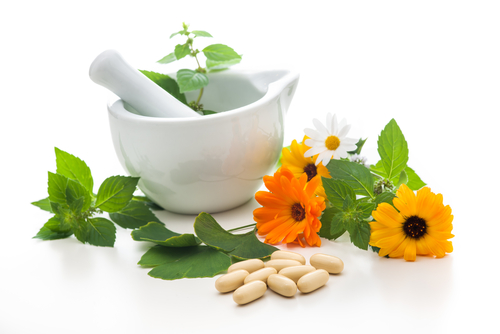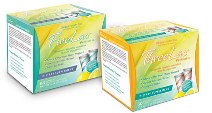Please read and share this article if you are a Eurosceptic – Or if you value freedom of choice where it comes to your personal health – Or both.
What did David Cameron accomplish last week in terms of getting back the health freedom that has been slowly, slice by slice, stolen from you over the last 10 years or so by the unelected officials from the EU?
Nothing. Absolutely nothing.
It often takes me anything from half a day to a full day to write a newsletter. However this newsletter is not going to take long to write, as there there isn’t much one can add to the word “nothing”.
But just to confirm:
– Our glorious Prime Ministers’s “re-negotiation” failed to get back the hundreds of banned health supplements, most of which were banned for the pettiest of reasons. (In my opinion, in most cases the real reason was because they conflicted with the vested interests of the big corporations which time and time again, EU policies protect, at the expense of small innovative business).
– He failed to get back your right to decide what health supplements you can put into your body (as though it ever was anybody’s else’s business in the first place, providing they are not blatantly toxic).
– He failed to get back your right to be provided useful and meaningful information on the products that are not banned.
– He failed to get the directive overturned which effectively makes any substance on the planet into a medicine (even water) at the whim of an unelected EU bureaucrat which can then be restricted or regulated at the drop of a hat.
– He failed to put a stop to TTIP, which means could mean the UK (in fact the entire EU) will be flooded with genetically modified (and as far as I am concerned, dangerous) foods.
A lot of people agree that EU regulation is all pretty silly, and a waste of taxpayers money. But where it comes to something as fundamental as their health, or indeed any core issue of their life, it doesn’t greatly affect them. Well, if you are into natural health, holistic medicine etc, and you think that, I take no joy in telling you that you are simply wrong, and your freedoms are being trodden on disgracefully. And even if you are not personally into natural medicine, do you really think that unelected bureacrats ought to be dicating what others can and cannot put into their own body’s?
Although I have my personal views on the EU as an organisation, as a health company director, I only see it as appropriate to focus on my own area of knowledge, namely my (pretty unsuccessful) attempts to protect my customers health and well being, and my (equally unsuccessful) attempts to protect their freedom of choice in this area of their lives from unnecessary EU interference.
Below is a quick summary of some (but not all) of the EU directives that are damaging your right to choose, and your access to information. The UK government opposed some of it, but where they did, they were simply outvoted. However the majority of these regulations were simply passed into UK law without so much as a whimper of protest by any of the major political parties that have been in power during the last decade. In my opinion, they have let us all down horrendously by not protecting our freedoms.
The Food Supplements Directive (2002/46/EC).
This directive requires all legally available nutrients to be on a rather arbitrary positive list in order to be allowed to be sold and consumed. As far as we could see, it seemed to depend primarily on whether that form of nutrient happened to be available in Germany at the time. In 2009 it was estimated that around 300 nutrients were banned by this irksome directive, though the real figure would be much higher given the fact that it completely blocked new forms of vitamins and minerals from coming onto the market. Examples include many perfectly safe and effective forms of magnesium, selenium and chromium. Although the situation is bad, this is set to become far worse if the Maximum Permitted Dosage levels for vitamins and minerals get set at useless Mickey mouse levels, which is a serious possibility at the next stage of implementation. Several organisations, including an entity called “Health Europe”, which is in reality just a bunch of lobbyists who are paid by the self-interested pharmaceutical companies, who fund this “organisation”, are lobbying for maximum levels to be set at EU RDA levels. These levels will be completely useless for any kind of therapeutic usage – as well as a direct assault on your freedom of choice. It has been claimed that this market was completely unregulated before this directive (and the next one I am going to talk about) came in. But this is nonsense. Vitamins, minerals and herbs were regulated by the Drugs Act 1968, and personally I don’t remember noticing too many dead bodies lying about in the streets because someone or other took a high dosage Vitamin C tablet prior to 2009. Yes, it was light touch regulation, reflecting how safe most vitamins, minerals, herbs and other natural products usually were – but it was never unregulated. This is a total myth.
The Traditional Herbal Medicinal Products Directive (2004/24/EC)
In essence this is a spiteful and vindictive directive designed to protect the vested interests that successfully campaigned for it, which has created a huge black market where none previously existed. This directive has led to a tripling of the cost of many herbs, and their pharmaceuticalisation. Many have been banned outright. Many more have been chemicalised and pharmaceuticalised until they bare almost no resemblance to the 2000 year old traditions of herbal medicines, and contain all sorts of artificial chemicals which are at best questionable, and in some cases dangerous. We tried very hard to object to this horrible directive, but without success. You can read more about it here including the latest news.
Before this directive came in, some clearly dangerous herbs were banned under the Drugs Act 1968 (and some others banned we think unfairly) along with psychoactive drugs like marijuana (which itself is a very controversial ban). But on the whole consumers were relatively free to buy what they wanted, and sellers relatively free to provide products. But with the new directive, the EU seems determined to stop you from actually making decisions for your yourself, about your body. Perhaps they fear that you might make the decisions that don’t serve their vested interests – just as some people genuinely believe we should never have a democratic vote on our membership of the EU lest you vote the ‘wrong’ way. (The organisation formed as a result of the 1991 Maastrict Treaty, when the EEC became the EU, which not one UK citizen was ever consulted on or gave consent to).
The EU Labeling Directives (2003 and updated in 2014)
This directive, if strictly enforced could make more or less all non EU imports illegal to sell, for reasons as petty as the font size on the label not complying the required size, the ingredients not being listed in the required order, or wording such as “expiry date” instead of “best before” on the label. Can the rules really get any more petty and frivolous than this? Presumably this rule is there because they think you are too thick to know what the words “expiry date” rather than “best before” mean. Mercifully, the UK authorities don’t seen to be enforcing this with an iron fist, and have avoided harassing companies over trivial nonsense so far, but who knows what’s around the corner? Certainly these regulations enable the powers that be to put companies out of business overnight – through the harsh enforcement of EU directives. And regardless of who it is claimed to help, who benefits from this in reality? The consumer? Or big pharma? I could easily write a shed load more on this directive, but I won’t.
The Nutrition and Health Claims Regulation (No 1924/2006)
This is the nastiest and cruelest of the lot. This is the directive which has made it illegal to say anything meaningful about virtually everything – leading to the total ban on the claims that water hydrates the body, or that prunes help with constipation – and tens of thousands of pounds of taxpayers money spent on arriving at these preposterous conclusions. With some of the products we provide, this has led to an up to 90% drop in sales.This is the directive which caused products such as Optibac Probiotics For Bowel Calm (a nice and clear product name) to have to be renamed “Saccromyces Boulardii” (which is completely meaningless or ordinary people). Similarly Optibac Probiotics For A Flat Stomach to had to be renamed “One week flat”. That’s because even the name of the product was deemed an illegal health claim. If you are finding it hard to find useful information on the supplements you are interested in, or which supplements might help you, or why you end up with no choice but to view third party, non EU based web sites to obtain information, blame this directive. Blame the EU. The idea, perhaps noble of protecting the consumer, has ended with a Draconian directive which makes publishing legitimate opinion into a crime, and bans companies even telling you what scientific research has found – unless the European Food Standards agency gives you permission to do so, and of course only after they have spent up to a million Euros submitting a single health claim. This is impossible for small to medium sized companies like the Finchley Clinic – the businesses all the mainstream political parties agree are the life-blood of the economy, yet where it comes to protecting them from petty EU regulations when they are in power, at best do nothing, and at worse encourage it! Result: the industry is becoming more and more disincentivised to even try to provide worthwhile, helpful information. So when you find that the information available on a nutrient is that it “contributes to normal energy-yielding metabolism”, instead of something that is actually useful for you to know i.e… what it may help with…it’s not the industry who are to blame – it’s the unelected EU commissioners, on their rather comfortable over £300,000 per year (plus expenses) salaries.
The Human Medicinal Products Directive (Directive 2001/83/EC).
This directive can make any food, food supplement or cosmetic a drug at a regulator’s discretion – anything which has “a physiological effect”, or is claimed to have. This of course makes anything, theoretically even water into a medicine! After all, if you tried to avoid water for more than two or three days, you’d soon learn whether or not it has a physiological effect, even if as according to the EU geniuses, it does not hydrate the body!
Words would be inadequate to describe how heartbreaking it is for us to be banned from providing many safe, effective natural health products and to tell you what they actually do even when we can sell them. And even more heart breaking for your health to be compromised as a result. Even more so in view of the estimated 40,000 deaths per year conservatively estimated by University College, London to occur in the UK as a result of CORRECTLY prescribed medical drugs (the numbers are even higher when the death rate for badly prescribed drugs is added to this).
(Source: Daily Telegraph December 19 1999. Similar article Daily Telegraph 30 Nov 2008, numerous newspaper and medical journal articles have come out since these older citations, all saying the same thing. However I haven’t bothered to save them all, because they all say the same thing, so it just gets repetitive after a while).
How David Cameron has failed to protect public health, the orthodox medical establishment and the NHS
This area justifies a separate newsletter, and we’re on borrowed time already. So all we’ll say is click here to read about how our membership of the EU is making a total mess of the NHS and could eventually cause us to have a third world health system.
A solution?
There is an alternative to having to comply with EU regulations which pose a threat to your personal health, your health freedom, and access to health information. The alternative is to leave the EU, and be done with the regulation of every nook and cranny of our personal lives. In the good old days, was there anything that bad about having our laws made by people who we actually elected, and could throw out if they did a lousy job?
Call me old fashioned, but I rather like our laws to be made by democratically elected British politicians (even if they were made by politicans I happen to disagree with) rather than unelected bureaucrats, who for all we know, have never even stepped on British soil, and have no reason to be especially concerned with what is best for the UK or its citizens.
Mark G. Lester – Director, The Finchley Clinic Ltd
www.thefinchleyclinic.com

 A healthy oxygenated environment helps Silica Plus do it’s job even better. We supply a number of liquid oxygen products, but we usually recommend customers to combine Silica Plus with Oxygen Elements Max, made by the same company. Indeed Silica Plus was originated formulated to be Oxygen Elements Max’s sister product. Although Silica Plus can and does work by itself the increased oxygen enhances ALL the potential benefits of Silica Plus.
A healthy oxygenated environment helps Silica Plus do it’s job even better. We supply a number of liquid oxygen products, but we usually recommend customers to combine Silica Plus with Oxygen Elements Max, made by the same company. Indeed Silica Plus was originated formulated to be Oxygen Elements Max’s sister product. Although Silica Plus can and does work by itself the increased oxygen enhances ALL the potential benefits of Silica Plus. We can’t finish this newsletter without giving a quick shout-out for the benefits of MSM. For problems of the hair, skin and nails, MSM (nutritional sulphur) can also be helpul. According to one one of the pioneers of MSM – Bill Rich – “wrinkles are caused by a lack of sulphur in the skin”. This is of course over simplistic, and there other factors that contribute to skin aging. Nevertheless healthy levels of sulphur do contribute to healthy radiant hair and skin, and supplementing with MSM has countless additional health benefits besides. But as always I know I am on borrowed time, so I’ll save that discussion for another day.
We can’t finish this newsletter without giving a quick shout-out for the benefits of MSM. For problems of the hair, skin and nails, MSM (nutritional sulphur) can also be helpul. According to one one of the pioneers of MSM – Bill Rich – “wrinkles are caused by a lack of sulphur in the skin”. This is of course over simplistic, and there other factors that contribute to skin aging. Nevertheless healthy levels of sulphur do contribute to healthy radiant hair and skin, and supplementing with MSM has countless additional health benefits besides. But as always I know I am on borrowed time, so I’ll save that discussion for another day.
 For the last year or so, we’ve been selling a new product called
For the last year or so, we’ve been selling a new product called 


 Candida likes a sluggish, oxygen deficient environment. We always recommend candida sufferers to use a
Candida likes a sluggish, oxygen deficient environment. We always recommend candida sufferers to use a  Wishing Good Health To All Our Valued Customers.
Wishing Good Health To All Our Valued Customers..jpg)
 Oregano Oil Blend
Oregano Oil Blend Thyme Formula
Thyme Formula Oregano Formula
Oregano Formula Wild Endive Formula
Wild Endive Formula Licorice Formula
Licorice Formula